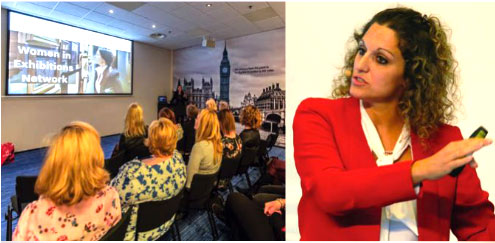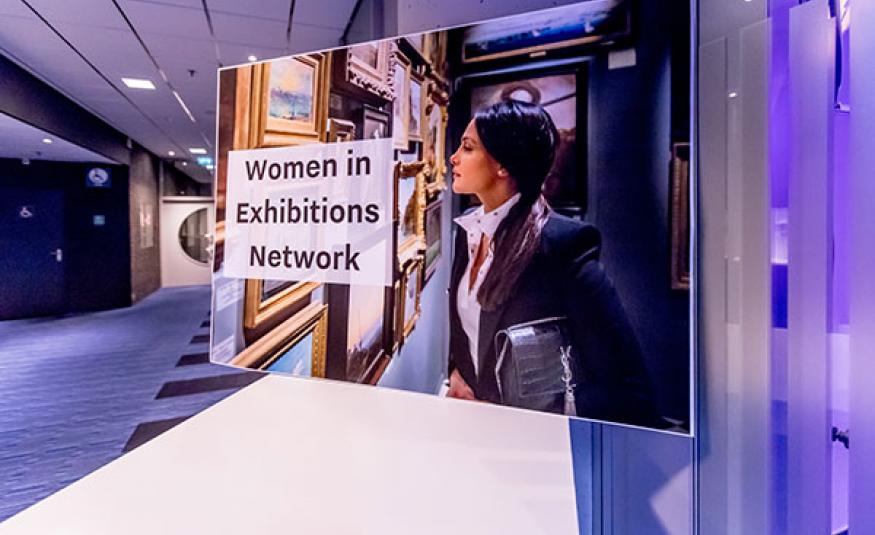For the second instalment of our Women in Exhibitions thread, EW asks what are companies and associations doing to enable women – and what could they be doing.
- Interview by Sarah-Claire Picton
In the last edition of EW we addressed the need for more women in senior roles in the exhibition industry with the help of representatives from Europe, Asia and the Americas. Here, we are exploring advice given by influential members of our industry around the world in an effort to see what women can do to improve their chances of landing senior roles, and how the industry is enabling them to do so.

The value of good mentoring
Larroque brings to light the fact that regardless of gender, find a mentor. “Gender equality is helping drive diversity in thinking and approaches to the exhibition industry – something needed to keep up with the ever-changing needs of the industry. Women in leadership positions can help bring that diversity in thought and there is plenty of evidence today showing the level of innovation and agility present when gender and culture diversity exists.”
Larroque’s advice for any woman is to develop their skills, read a lot and learn from their colleagues and peers. With the use of coaching in business, more women are developing their skills. “In my career, I have had the chance to be mentored, coached and developed by excellent business exhibitions organisers (if they happened to read this piece, I am sure they will recognise themselves) and several of my mentors were men with who I continue to keep in contact and who are continuing to support me in making the right choices,” she says.
 Chief executive of the UK’s Association of Event Organisers (AOE), Chris Skeith (pictured right), is actively engaged in creating an environment that champions women as much as men. “At the AEO, we’ve introduced the AEO Development Board which is a good indication of future leaders with almost three-quarters of the proposed candidates being female. In addition, our special interest groups are a 60-40 female to male split and 19 of the EN 30 Under 30 [a Mash Media initiative] for 2017 were also female so I think the future is definitely looking positive for women in the events industry.”
Chief executive of the UK’s Association of Event Organisers (AOE), Chris Skeith (pictured right), is actively engaged in creating an environment that champions women as much as men. “At the AEO, we’ve introduced the AEO Development Board which is a good indication of future leaders with almost three-quarters of the proposed candidates being female. In addition, our special interest groups are a 60-40 female to male split and 19 of the EN 30 Under 30 [a Mash Media initiative] for 2017 were also female so I think the future is definitely looking positive for women in the events industry.”
The challenge, Skeith says, is to “create the right environment to keep the great people we already have, and get the right people with the right skills and attitude to choose our industry - regardless of age, race, religion or gender, we need the best candidates.” And this is what their talent working group is focusing on.
On the other side of the Atlantic, gender equality, diversity, women in leadership and mentoring are now
Speaking at the latter, IAEE’s Nora Ellingwood, UBM Fashion’s VP of operations and expo billing, drove home the message of cultivating balance in the workplace. Ellingwood said she helps her staff figure out how to create more of a balance by having them cross-train to do each other’s jobs ‘so no one is stuck doing something’.
Also at that event, Gina Rudan, president of Genuine Insights, talked about how people should collect others around them to check in with on a regular basis and gain knowledge from unofficial mentors.
 Angela Herberholz (pictured left), programme manager at UFI, speaking on her own behalf rather than that of the association, references a recent survey, Women in the events industry – equal status or lagging behind? by German trade magazines tw tagungswirtschaft and m+a report, noting that only three in 100 women are CEOs.
Angela Herberholz (pictured left), programme manager at UFI, speaking on her own behalf rather than that of the association, references a recent survey, Women in the events industry – equal status or lagging behind? by German trade magazines tw tagungswirtschaft and m+a report, noting that only three in 100 women are CEOs.
“In some countries and regions, it’s true that the gap between men and women in CEO positions is larger than in others, but in general we can see there is disparity all over the world,” she says.
Herberholz’s message is to keep things flexible to enable women.
“By offering a flexible working environment, I believe we can encourage, empower and expose female professionals to better opportunities,” she says, and then offers an example: “creating flexible work schedules that focus on results, not attendance, enables women to participate and contribute on equal terms.”
She broadens the frame: “At the same time, when it comes to maternity leave and raising children, we must treat men as equals, too. Allowing both men and women to have the opportunity to be both successful and raise their children, in my opinion, is key.”
It’s vital to recognise our role in gender equality/diversity in the industry: not only as witness, but as catalyst to change; frame your future by choosing to act.
Read the feature in issue 3 | 2018 of Exhibition World, online here.






